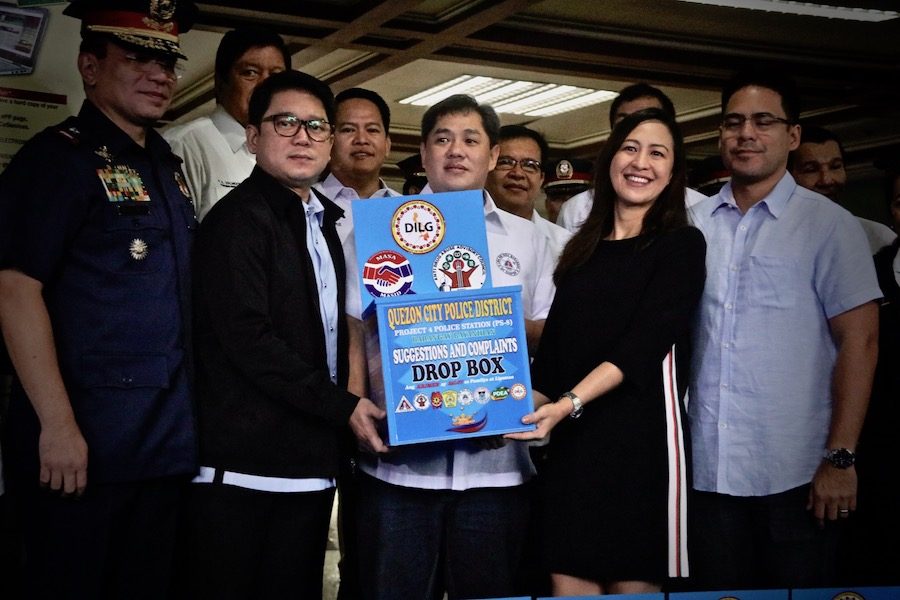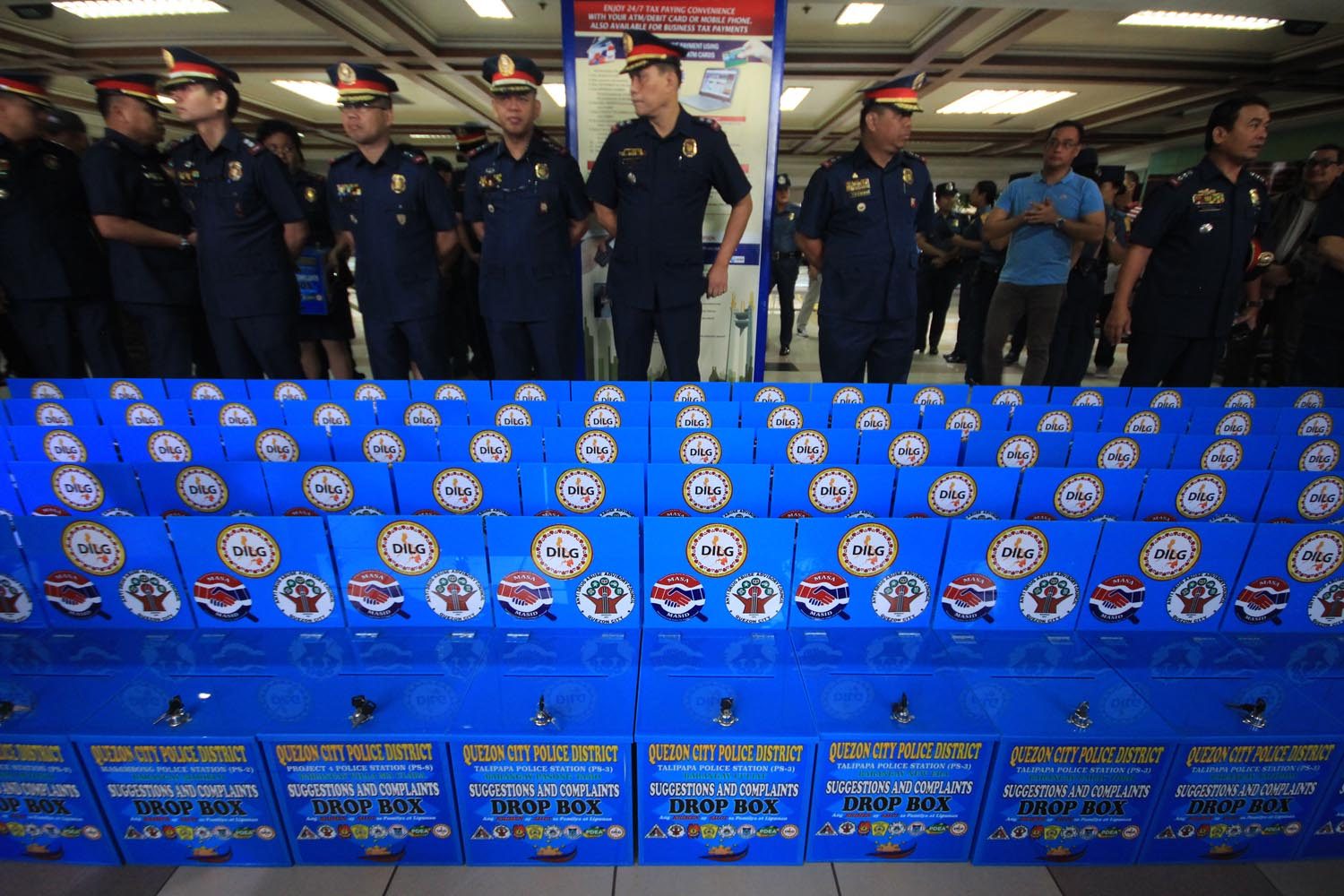SUMMARY
This is AI generated summarization, which may have errors. For context, always refer to the full article.

MANILA, Philippines – Despite the Department of the Interior and Local Government (DILG) dropping the abuse-prone crime reporting system, Quezon City pushed through with installing drop boxes in all its barangays.
Quezon City announced their distribution on December 22, claiming that it did so by virtue of a memorandum of agreement with the DILG.
The DILG, however, denied any part in the project, the idea of which had been criticized by citizens for the possibility of being used by ill-intentioned individuals to put into trouble anybody they hated.
DILG Officer-in-Charge Catalino Cuy said on Wednesday, January 3, they had nothing to do with the project, fulfilling their promise to senators that they would drop it.
“Hindi sa amin ‘yung sa boxes ng Quezon City. ‘Yung pangako namin sa Senate, sa Masa Masid. Kanilang initiative ‘yung sa Quezon City,” Cuy told Rappler in a phone interview.
(The boxes in Quezon City are not ours. Our promise for the Senate was for Masa Masid [to be cancelled]. [The boxes] are their initiative in Quezon City.)
The budget for the drop boxes under DILG’s Masa Masid (literally, the masses watching), Cuy said, had been scrapped, so the Quezon City local government funded the project themselves.
Cuy said the DILG would not interfere with the “local autonomy” of the country’s biggest city.
The Quezon City local government has not replied to our request for a comment.
Sketchy system?

Drop boxes as a reporting system was first legitimized by the DILG in a memorandum released in late August 2017 for the community-based anti-crime and drugs initiative Masa Masid.
They were primarily designed to accept tips against criminal and drug suspects, but the DILG expanded the functions of the drop boxes to include receiving suggestions and complaints on any matter concerning public interest.
Media reports triggered public outcry against the project, followed by public officials denouncing the plan just as Cuy and other DILG executives were defending their proposed 2018 budget before the Senate.
It also came at a time when Caloocan cops killed teenage boys based on unsubstantiated allegations of drug links. (READ: Cops ‘confirmed’ Kian ‘drug ties’ after operation, through social media)
Before the DILG memorandum was issued, only one village in Quezon City had used the drop boxes – Barangay Valencia. However, local police and officials found that they were not effective reporting channels as no notes were submitted during their first month of installation. – Rappler.com
Add a comment
How does this make you feel?
There are no comments yet. Add your comment to start the conversation.